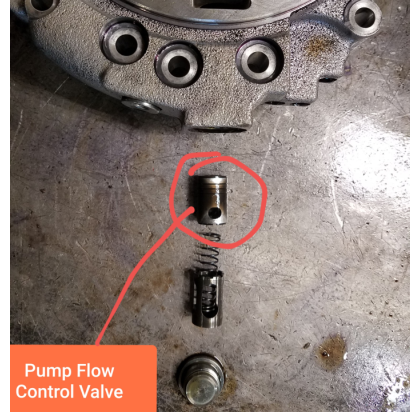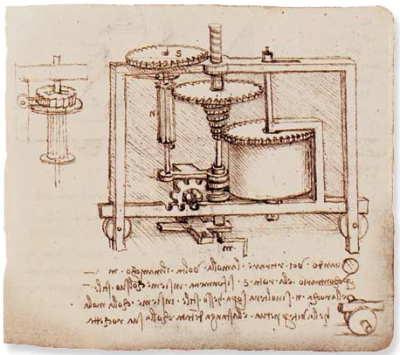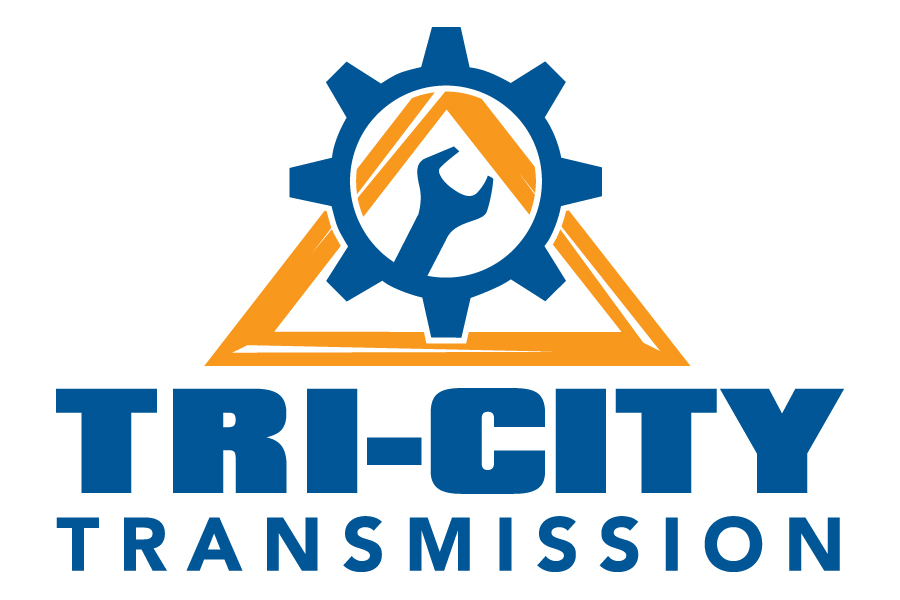 |
|
| Dave Riccio, Owner/Technician |
By Dave Riccio, ASE Certified Technician, Owner of Tri-City transmission & Auto Repair, Co-host of Bumper to Bumper Radio
CASE STUDY: Nissan CVT Repair versus Replacement (Continuously Variable transmission)
Customer Saves $3,000 over CVT Replacement Quote
RE0F09B / RE0F09A / JF010E (Nissan nomenclature / JATCO nomenclature)
This customer owns a 2012 Nissan Murano, front wheel drive (fwd) with 148,057 miles. He began to notice when leaving a stop, a slight hesitation that was getting progressively worse. He also began to notice the vehicle would hesitate when accelerating to pass someone when he was already at a cruising speed. Both of these subtle symptoms were getting increasingly worse, so he took his Nissan Murano to his trusted dealer.
After leaving his vehicle with the dealer, they quickly quoted him $4,800.00 to replace his CVT (Continuously Variable Transmission) transmission. He loves the car and wants to keep it for some years to come, but he had a hard time swallowing that price. He had always gone to his trusted dealer so they were his first stop when he wanted the transmission looked at. Like most with a CVT issue and sticker shock, he scoured the internet and found us. We invited him in for our preliminary no wrench transmission diagnostic. Our technician was able to identify a problem with the pump flow control valve. The good news was it could be repaired without having to replace the transmission. The customer approved us removing and repairing his CVT transmission.
Disassembly of the transmission showed a fully stuck, pump flow control valve just as our technician had diagnosed prior to removing and disassembling the transmission (see figure 1). The rest of the transmission looked to be in good order. The combination chain/belt assembly looked good. Both of the sheaves surfaces looked relatively clean and could simply be mildly resurfaced. The pulley slides showed some wear, but were very serviceable. For less than $2,000 we were able to put this customer back on the road, in a vehicle he loves, for years to come.
When the customer came to pick up his vehicle he was inquisitive as to why the dealership did not offer him the same repair we performed. We explained, the dealerships in general, almost never actually repair a transmission. They simply replace them. In this case of the CVT, it’s not just the dealerships. Almost no one, including transmission shops, are repairing continuously variable transmissions. At the end of the day, he was happy to keep the extra $3,000 and gained a new relationship with Tri-City transmission.
There is a lot of good information mixed with bad information in regard to CVT transmissions. Here is the problem with CVT transmissions:
Yes, in some cases, especially the early versions, they did seem to fail more often than traditional type automatic transmissions. However, this is quite a bit overstated or misrepresented since they are unique making them easy to identify with that stereotype. There are plenty of traditional transmissions that won’t last as long as a CVT, those transmissions just aren’t uniquely identified. The other reason CVT’s are overstated as being a bad transmission is most don’t understand them, so they simply blame the style of transmission for any issues. It’s easy to blame design when you don’t understand it and unique new things will always stand out. So if you consider this very job, this transmission went approximately 150,000 miles and still was only mildly symptomatic, by no means broken. Because continuously variable transmissions are so misunderstood, they have an unwarranted bad reputation. People inadvertently are replacing them in error every day compiling the bad reputation.
 |
|
| Figure 1: Pump Flow Control Valve |
While this particular customer had to get a more major repair, in many instances, we can fix CVT transmissions without ever removing the transmission from the vehicle. We oftentimes perform repairs that cost less than the car payment. This is where people go wrong. Like reading Web MD, you can talk yourself into an ailment you don’t have. People always think the worst when it comes to transmission problems and so with the misunderstood CVT, this is even more true. Customers can be their own worst enemy here. They go in and ask for a whole transmission. Guess what? It’s almost always what they get when working with a shop who does not understand the CVT technology.
Like it or not, CVT transmissions are here to stay. They will be more common on the lighter vehicles. They offer so much benefit when it comes to fuel economy and getting every last penny out of the fuel you burn. Nissan was the first to carry the torch as the sacrificial lamb to get CVT technology started in their Murano. Honda tried in the late 90’s, but only for a brief moment. Also, in the 1990s, Saturn and Subaru had CVT transmissions in their vehicle, but only for a for flash in the pan.
Nissan started in the first generation of Murano ranging from 2002 to 2007. The Murano was fairly successful but still caught some bad press because of the reasons described above. Nissan continued with the CVT from the Murano moving it into several more models. Early on, they have learned some hard lessons but are probably on the downhill slide of that learning curve. Eventually they ended up putting this style of transmission in their Nissan Cube, Nissan Altima, Nissan Juke, Nissan Maxima, Nissan Sentra, Nissan Rogue, Nissan Versa, Nissan Pathfinder, Nissan Pulsar, Nissan Quest, Nissan NV200 and Infinity QX60.
A little clarification, Nissan does not actually build the continuously variable transmission. They are built by a company called JATCO (Japanese American transmission Company). JATCO CVT transmissions show up in a lot of the other auto maker brands. Mitsubishi Outlander, Mitsubishi Lancer, Jeep Patriot, Jeep Compass, and Dodge Caliber all share the same JATCO Model# JF011E CVT transmission.
Almost all the other major mainstream auto makers have followed suite when it comes to utilizing the CVT automatic transmission. This would include manufacturers such as Ford, Chrysler, Jeep, Dodge, Honda, and Toyota. The automatic CVT transmission is used exclusively in all the new Subaru vehicles.
-
 Worn Belt
Worn Belt
Worn Belt
Worn Belt
-
 Pump Flow Control Valve
Pump Flow Control Valve
Pump Flow Control Valve
Pump Flow Control Valve
-
 Worn Pump Flow Control Valve
Worn Pump Flow Control Valve
Worn Pump Flow Control Valve
Worn Pump Flow Control Valve
-
 Assembled Pulleys with Belt
Assembled Pulleys with Belt
Assembled Pulleys with Belt
Assembled Pulleys with Belt
-
 Damaged Pulley Surface
Damaged Pulley Surface
Damaged Pulley Surface
Damaged Pulley Surface
-
 CVT Chain/Belt
CVT Chain/Belt
CVT Chain/Belt
CVT Chain/Belt
-
 CVT Chain/Belt
CVT Chain/Belt
CVT Chain/Belt
CVT Chain/Belt
-
 Main CVT Components
Main CVT Components
Main CVT Components
Main CVT Components
-
 CVT Disassembly Process
CVT Disassembly Process
CVT Disassembly Process
CVT Disassembly Process
-
 CVT Case Half
CVT Case Half
CVT Case Half
CVT Case Half
-
 Finished Product
Finished Product
Finished Product
Finished Product
https://tricitytransmission.com/index.php/about-tri-city/media-stories/latest-news/item/5883-nissan-cvt-transmission-problems-continuously-variable-transmission-repair#sigProId03930c87db
Transmission Background Information:
 The idea of CVT transmission technology has been around for a solid hundred years. In concept, it’s older than that considering Leonardo da Vinci put the idea to paper in the late 1400’s. From concept to production, 500+ years later, the CVT was typically found in lighter vehicles such as snowmobiles.
The idea of CVT transmission technology has been around for a solid hundred years. In concept, it’s older than that considering Leonardo da Vinci put the idea to paper in the late 1400’s. From concept to production, 500+ years later, the CVT was typically found in lighter vehicles such as snowmobiles.
CVT transmissions were just not utilized in the automobile until the late 90’s with a few Honda models. In 2002 Nissan went all in with the CVT in the Murano. Even with the proliferation of CVT transmissions, you probably won’t see them for a while in the truck transmissions.
Trucks are just too heavy for the CVT technology, at least at this present moment. For fuel economy and creature comforts, trucks still need the granularities for shifting provided by CVT. Since the CVT won’t work in a truck, in order to accomplish the same goals of a CVT, trucks have gone the route of the 6,7,8,9 and 10 speed transmissions. This offers similar benefits like the CVT in regard to seamless shifting and fuel economy, but they are able to handle the weight and horsepower typically associated with trucks.
People originally were very adverse to the way CVT transmissions shifted or didn’t shift. It felt unnerving to most. However, that was the early models, almost two decades ago. As the design of the CVT transmission has not only improved, so has the software that runs the transmission. Some of the newest CVT models feel just like a normal automatic transmission. Yes, many of the bugs from that model 2002 Murano have been worked out.
Toyota was one of the last manufacturers to get on board with CVT automatic transmissions. Reading the engineering papers, it seems they wanted to utilize CVT transmissions, just not until they had it perfect. Frankly, we are impressed by the way the Toyota CVT transmissions operate. It was well worth the wait.
The Moral of This Story:
1. Don’t waste money on replacing your CVT when in some cases, we can fix it for a fraction of the price.
2. Don’t be scared of CVT transmissions. The bugs seemed to have been worked out thanks to the sacrificial transition to CVT from Nissan.
Other Common JATCO transmissions in Nissan Vehicles
JF011E / RE0F10A – Nissan Sentra
JF009E / RE0F11A – Nissan Note
JF010E / RE0F09B – Nissan Murano, Nissan Altima
JF015E / RE0F08A/B – Cube and Note
Each automaker typically will have their own model # for a particular transmission and then the actual manufacturer of the transmission has different model #. It can be hard to keep track of all the variations between different transmission manufacturers and auto makers. These references are in no way meant to be used as a diagnostic tool, rather points of reference.
Other CVT Related Case Studies
Nissan CVT Transmission Problems | Continuously Variable Transmission Repair


